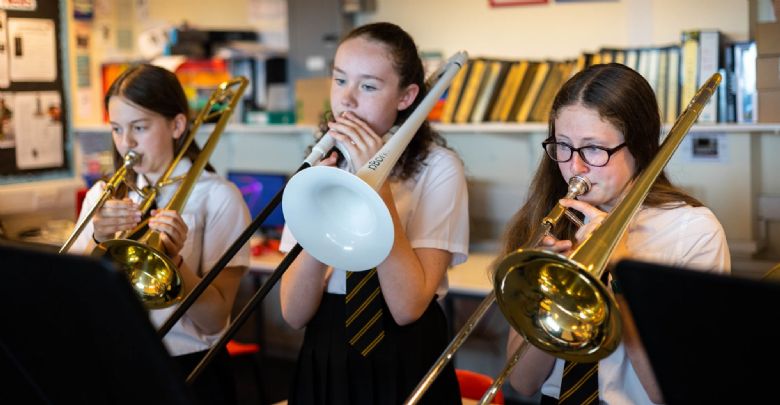GCSE Music
Will I enjoy the course?
Yes, if you enjoy the following:
- Performing music on your instrument or singing
- Composing music, either on your instrument or using ICT
- Listening to and appreciating different types of music
What if I already learn an instrument or have singing lessons?
That’s great! You may decide to use pieces that you have already prepared as part of your controlled assessment work. As a rough guide, a piece of music that is suitable for a Grade 3 instrumental exam could get you a GCSE Grade 7 or 8 in the performance element if you play it well.
What if I don’t play an instrument or have singing lessons?
Performance is a big part of this course. You must be able and prepared to perform, but this can be on any instrument at all, including voice. Although performance is only 30% of the overall mark directly, the more advanced you are as a performer, the more accessible you are likely to find the other elements of the course.
You will not be taught to play an instrument as part of GCSE music; rather it is expected that you are learning one alongside it.
If you do not currently play an instrument but are interested in taking music, please speak to Mr Crabtree or Mrs Young for advice.

What will the examination be like?
At the end of the course you will listen to a CD and answer questions on the Areas of Study, which cover music from around the world over the last 400 years. These areas are: The Concerto Through Time, Rhythms of the World, Film Music and Conventions of Pop. The exam is 40% of your total mark.
Is there any coursework?
Yes – 60% of the overall mark. You will perform (play or sing) at least two pieces, lasting at least 4 minutes. At least one must be as a soloist and at least one as part of a group. Combined, they must be at least 4 minutes long and should ideally be of approximately Grade 3 standard or above. They will be recorded and marked by your teacher. The performance portfolio is worth 30% of your GCSE.
You also need to compose two pieces, lasting at least 3 minutes. One of these will be of your own instrument that you use for your solo performances, the other will be written in Year 11 to a brief that is set by the exam board. The two compositions together make up 30% of your GCSE.
Routes of employment
Studying Music enables students to develop many transferable skills including creative thinking, reflection and refinement of work and independence.
Students who have studied Music go on to study courses at college, sixth forms and universities such as Music, Music Technology or Performing Arts, as well as a wide range of other courses.
Students who have studied Music have access to a wide range of careers and employment opportunities such as those within the creative industries, either performing or in the many roles behind the scenes, as well as being looked on favourably by almost any employer; success in music is a demonstration of an ability to dedicate effort over many years.
